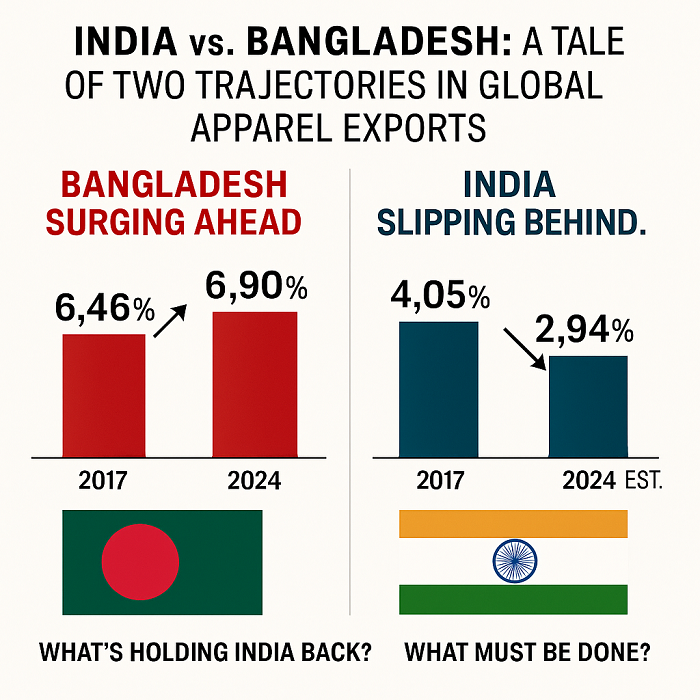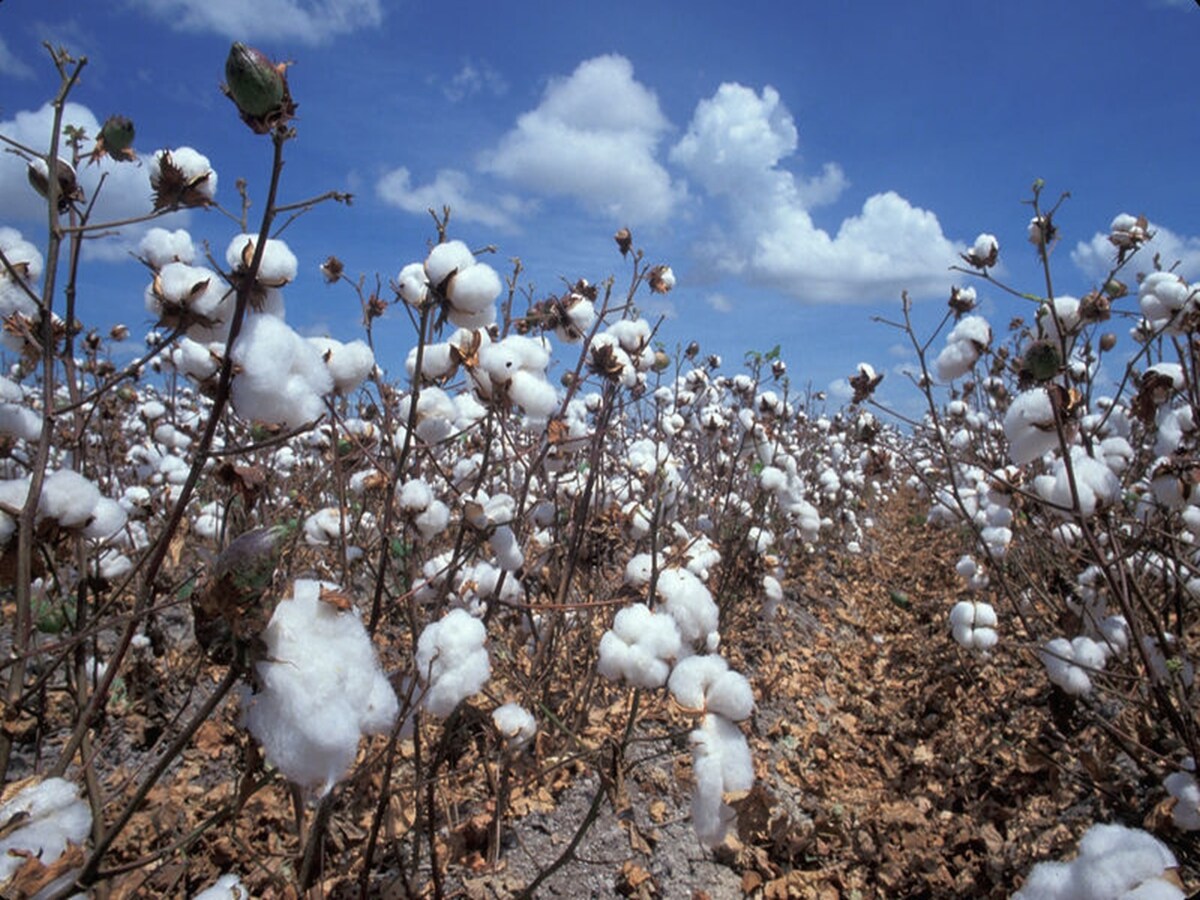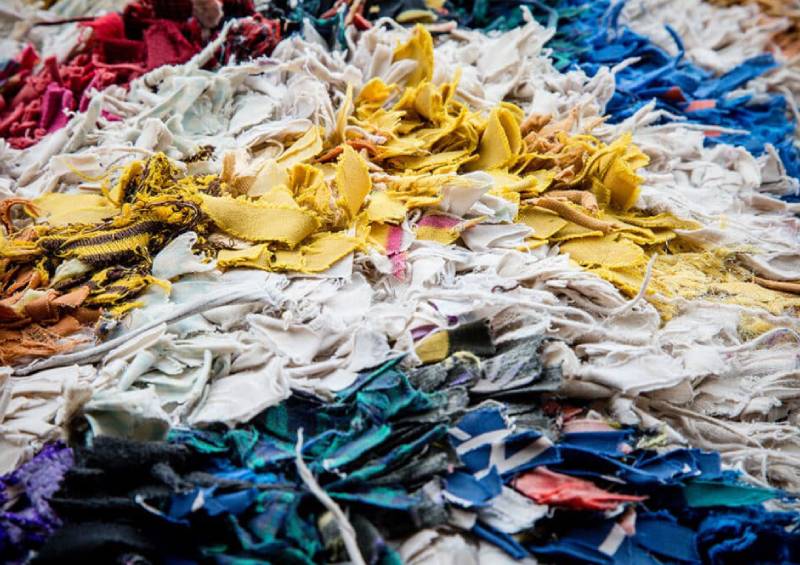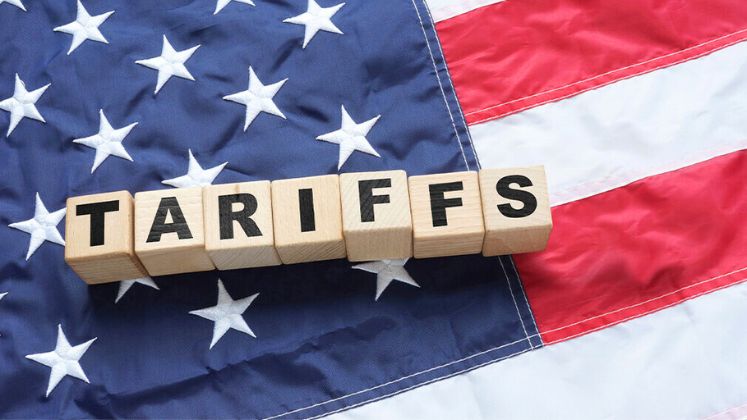FW
The Responsible Sourcing Network (RSN) has launched its first cohort of multi-stakeholder members for YESS(Yarn Ethically & Sustainably Sourced), marking a milestone in advancing transparency and accountability in textile sourcing. This shift to a membership model, introduced last year, enables deeper engagement in the industry to address forced labor and strengthen supply chain due diligence.
YESS’s inaugural brand members feature industry giants such as Adidas, Fanatics Apparel, Inditex, The Walt Disney Company, and Walmart Inc, all committed to reinforcing ethical practices within yarn sourcing. These companies are now actively collaborating with mills at various levels to enhance sustainability initiatives. Participating spinning and fabric mills gain access to YESS assessments and specialized training, building capacity for responsible sourcing and improved due diligence.
The program is set against the backdrop of evolving regulations like the EU's Corporate Sustainability Due Diligence Directive (CSDDD), which calls on companies to enforce human rights and environmental safeguards across their supply chains. Kristen Albertson, Walmart’s VP of Responsible Sourcing, highlighted the significance of collective action to protect worker welfare, with YESS serving as a vehicle for transparency and risk management.
Initial mill members, including Nishat Mills, Raymond Denim, Shahi Exports, and Sree Santhosh Garments, will be featured on the YESS Participating Mills list, accessible to members only. Civil society organizations, academic institutions, and associations, including the US Fashion Industry Association (USFIA) and Verite, also play vital roles in the initiative. Julia Hughes, USFIA president, emphasized the importance of accountability across the cotton supply chain, aligning YESS’s approach with laws targeting forced labor.
To expand globally, YESS will leverage e-learning platforms and international auditors. Management company Sumerra will oversee assessments in countries like Pakistan, India, Bangladesh, and Vietnam, with auditing conducted by ARCHE Advisors, ASSESS International, and TUV Rheinland.
By uniting brands, mills, and civil organizations, YESS aims to create a cohesive, effective due diligence framework to combat forced labor in cotton production, promoting sustainable and ethical practices industry-wide.

Zara, the flagship brand of Spanish fashion giant Inditex, is making significant strides in sustainability and innovation, aiming to lessen its environmental impact and revolutionize the textile industry. The company recently announced a €50 million fund dedicated to fostering innovation, primarily within the textile sector. This move underscores Inditex's commitment to a greener future, aligning with its ambitious pledge to halve emissions across its entire supply chain by 2030.
This new fund, managed by Mundi Ventures, will primarily focus on supporting startups developing groundbreaking materials and technologies with a reduced environmental footprint. This initiative builds upon Inditex's existing investments in sustainable technology companies, such as Circ a US-based firm specializing in textile-to-textile recycling, allowing for the creation of new garments from old ones, reducing waste and reliance on virgin materials. Zara has already collaborated with Circ on a clothing collection made from recycled polycotton blends. Zara has also teamed up with Galy, another US-based start-up pioneering a process to produce cotton in laboratories from plant cells, eliminating the need for traditional cotton farming and its associated environmental impact
Meanwhile, Inditex has committed to making 25 per cent of its garments from new fibers that do not yet exist on an industrial scale, and is investing heavily in their development, say media report. This ambitious goal highlights the company's dedication to pushing the boundaries of textile innovation and leading the industry towards a more sustainable model
Key initiatives driving Zara's sustainability efforts
Sustainable materials: Zara is increasingly incorporating sustainable materials into its collections. Organic cotton, recycled polyester, and Tencel Lyocell are just a few examples of eco-friendly materials being used. The company is also exploring innovative materials like lab-grown cotton and recycled textiles derived from discarded clothing.
Circular economy: Zara is actively promoting a circular economy model by encouraging the reuse and recycling of garments. Initiatives like the "Join Life" collection, featuring clothing made from recycled materials, and in-store clothing collection programs for recycling are key components of this strategy.
Reduced emissions: Zara is committed to reducing greenhouse gas emissions across its operations. This includes improving energy efficiency in stores and distribution centers, as well as working with suppliers to minimize their environmental impact. The company's goal to halve supply chain emissions by 2030 is a testament to its commitment to climate action.
Transparency and traceability: Zara is increasing transparency across its supply chain, providing customers with more information about the origin and manufacturing processes of its products. This allows consumers to make more informed choices and supports ethical and sustainable practices.
The Join Life’ collection serves as a prime example of Zara's commitment to sustainability. This collection features clothing made from more sustainable materials like organic cotton, recycled polyester, and Tencel Lyocell, produced using environmentally friendly processes. The Join Life label helps customers easily identify and choose sustainable options, further promoting conscious consumption.
While Zara and Inditex are making significant progress, challenges remain. Scaling up production of innovative materials and ensuring their affordability are key hurdles to overcome. Furthermore, consumer awareness and demand for sustainable fashion play a crucial role in driving industry-wide change. Zara's proactive approach to sustainability and innovation positions it as a leader in the fashion industry. By investing in research, collaborating with startups, and implementing sustainable practices across its operations, Zara is paving the way for a more responsible and environmentally conscious future for fashion.
Once a dominant force in the textiles and footwear sector, Sri Lanka's apparel industry is currently lagging behind emerging competitors like Cambodia. This is attributed to the inconsistent government policies that have hindered investments in Sri Lanka’s garment sector, says Sri Lanka’s Joint Apparel Association Forum.
Expected to reach $5 billion in total apparel exports in 2024, JAAF aims to increase these to $8 billion by 2025. To achieve this, the association calls for consistent government support and policies, particularly around free trade agreements (FTAs). Felix Fernando, Deputy Chairman, JAAF, emphasises on the need to form new FTAs with major markets like India, China, and Japan to attract investment and boost exports. Vietnam's success has been driven by the numerous FTAs secured by the country offering global buyers duty concessions, making it an attractive investment destination.
Meanwhile, Cambodia’s textile exports rose by 25 per cent to nearly $9 billion in during the first nine months of 2024 as against the same period in 2023. The country has now become the sixth-largest garment exporter to both the US and Europe. This success is partly due to Cambodia's 2023 ‘Industrial Transformation Map,’ which aims to modernise technology, encourage investment, and enhance skills training.
The broader Southeast Asian region, including Indonesia, Malaysia, Thailand, and Vietnam, has witnessed substantial apparel export growth since the end of COVID-19 restrictions. Wilson Teo, President, Singapore Fashion Council, highlights, yjr region’s integrated supply chain, cost-efficiency and improved infrastructure offers it a competitive advantage. The region has also made a shift towards sustainability, with manufacturers adopting eco-friendly practices, reducing waste, and investing in renewable energy, he notes.
Automation, digitalisation, and closer collaboration between manufacturers and brands are helping ASEAN textile companies advance their operations. Companies like Singapore-based Ghim Li are setting the standard with integrated textile production facilities across Southeast Asia, shipping millions of garments globally. This focus on innovation, sustainability, and strategic partnerships is driving the region’s apparel sector forward, positioning it as a key global player in textiles.
The Italian Trade Agency (ITA) has collaborated with the Italian Textile Machinery Manufacturers Association (ACIMIT) to introduce advanced textile technology in Indonesia. This initiative aims to offer innovative solutions to enhance efficiency and sustainability in Indonesia’s textile sector.
Speaking at a series of workshops held on Nov 12, Dr Paola Pinto, Trade Commissioner, ITA, said, the digital and automated solutions offered by Italian textile technology help boost productivity besides minimising environmental impact.
The workshops promoted these advanced technologies in Solo on Nov 12 and Bandung on Nov 14, 2024. Both these events provided Indonesian textile professionals with firsthand exposure to Italy's cutting-edge innovations. A total of 17 Italian textile manufacturers participated in these workshops showcasing their expertise in areas such as finishing, dyeing, non-woven fabrics, spinning, weaving, knitting, and textile laboratories.
Liliek Setiawan, Vice Chairman- Regional Representative Body, Indonesian Textile Association (API) for Central Java, highlighted, these workshops not only fostered B2B meetings for technology transfer but also laid the groundwork for strategic partnerships. These alliances could address the evolving challenges of the textile industry, including the shift toward sustainability.
This technology allows textile companies to remain competitive in a global market increasingly focused on sustainability, noted Setiawan. This initiative would elevate Indonesian textiles to a more modern and internationally competitive level, he averred.
Dr Marco Salvade, President ACIMIT emphasised the dual purpose of these workshops as both a showcase for Italian technology and a platform for mutual learning.
The introduction of Italian textile technology is expected to the textile industry in Java with insights into the latest developments in digitalisation, the Internet of Things (IoT), and sustainable practices. These innovations are seen as crucial for increasing productivity and reducing the environmental footprint of the local textile sector.

The US textile and apparel industry is undergoing a significant shift in its sourcing strategies, with imports from traditional Asian powerhouses declining and nearshoring options gaining traction. This trend, evident in the latest import data, as compiled by David Birnbaum, reflects a confluence of factors reshaping global supply chains.
Asia's Declining Dominance:
For years, countries like China, Vietnam, and Bangladesh have dominated US garment imports due to their low labor costs and established manufacturing infrastructure. However, the data reveals a clear decline in their share of the US market.
• China, once a behemoth, saw its garment imports to the US shrink by 24.9% in 2023. This continues a trend observed in the year prior, indicating a sustained shift away from Chinese sourcing.
• Vietnam and Bangladesh experienced similar declines, with imports falling by 22.3% and 25.1% respectively.
Several factors contribute to this decline:
• Rising labor costs in Asia: As these economies grow, wages are increasing, eroding their cost advantage.
• Geopolitical concerns: Trade tensions and political instability in certain regions have prompted businesses to diversify their sourcing.
• Supply chain disruptions: The pandemic exposed the vulnerabilities of long, complex supply chains, leading companies to seek more resilient alternatives.
Nearshoring on the Rise:
While Asian imports decline, nearshoring options are gaining momentum. This involves sourcing from countries closer to the US, such as Mexico and Central American nations.
• Mexico's garment imports to the US decreased by 10.9% in 2023, a smaller decline compared to most Asian countries. This suggests a relative strengthening of its position.
• CAFTA-DR countries also experienced a smaller decline of 23.3%, indicating their growing relevance.
The benefits of nearshoring are clear:
• Shorter lead times: Reduced shipping distances translate to faster delivery and greater responsiveness to market demands.
• Lower transportation costs: Proximity reduces shipping expenses, making nearshoring more cost-competitive.
• Greater supply chain resilience: Nearshoring mitigates the risks associated with long-distance sourcing, such as geopolitical instability and transportation disruptions.
Other Notable Trends:
• India presents an interesting case. Despite a 21.5% decline in 2023, its market share has seen a slight increase, suggesting potential for future growth.
• EU imports increased by 3.8%, highlighting the appeal of higher-quality goods and established trade relationships.
Looking Ahead:
The shift in US garment imports is likely to continue, driven by evolving economic, political, and logistical considerations. Nearshoring is poised to play an increasingly important role, offering greater agility and resilience in a rapidly changing world. However, Asia will likely remain a significant player, particularly as it adapts to new challenges and focuses on higher-value segments.
Minnesota-based eco-friendly apparel brand Abode Outside is expanding its wholesale program with four new outside rep agencies, enhancing its ability to serve key markets. Known for sustainable, four-season apparel, Abode’s wholesale growth follows its strong performance in e-commerce and an increasing presence in brick-and-mortar stores.
Abode's VP of Operations and Co-founder, Jake Baller, emphasized that the rising demand for affordable, sustainable apparel aligns well with their decision to expand retail partnerships.
This step is expected to boost the brand's visibility, bringing it closer to a wider audience while reinforcing its presence in the market. The company views this growth as essential to advancing its brand and connecting with environmentally-conscious consumers.
The recent additions bring Abode’s regional sales team to six, though the company is still seeking reps for the South and Pacific Northwest regions. This expanded team aims to provide better service to retail partners and enhance the availability of Abode’s eco-conscious products across the US.
Registration is now live for Source Fashion, Europe’s leading responsible sourcing event, taking place from February 18-20, 2025, at Olympia London. The event will feature hundreds of exhibitors from key sourcing regions like Turkey, Taiwan, Ethiopia, China, India, and Portugal, showcasing everything from white-label products to bespoke ranges. The new floorplan will highlight categories including Womenswear, Menswear, Footwear, Accessories, Luxury, and Technology & Services.
A major addition to this year’s show is Source Debates, an interactive stage where experts, brands, and attendees will tackle pressing topics in sustainable fashion. This platform encourages open dialogue, focusing on actionable solutions to the industry’s most critical challenges. The Catwalk Stage will also return, featuring live shows three times daily, along with panels and case studies from fashion leaders.
Event Director Suzanne Ellingham expressed her excitement for the upcoming show, emphasizing the importance of connecting global manufacturers with UK buyers. With a focus on responsibility and transparency, all exhibitors are audited to ensure ethical practices.
Source Fashion offers an unmatched opportunity for fashion professionals to source materials, explore new trends, and engage in meaningful discussions. Renowned brands such as ASOS, Paul Smith, Reiss, and River Island have attended past editions, underscoring the event’s growing influence.
Hayley Shore of PepsiCo and designer Jeff Banks both praised the event’s ability to inspire and foster innovation, with Banks particularly excited about the luxury segment and future growth.
Alibaba Group reported significant sales growth during this year’s extended Singles' Day event, which wrapped up on November 11. While the company did not disclose total revenue, it noted that 45 brands, including Apple, Haier, Midea, and Xiaomi, surpassed 1 billion yuan ($138.62 million) in gross merchandise value (GMV).
JD.com, China’s second-largest e-commerce platform, also saw a more than 20 per cent increase in shoppers compared to last year, though it did not release sales data. Data provider Syntun estimated that sales across major platforms rose 2.08 per cent last year to 1.14 trillion yuan, with third-party estimates for 2024 still pending.
Initially a 24-hour event, Singles' Day has expanded into weeks of promotions. This year's event, which began on October 14, was the longest edition to date. Despite a subdued economic environment, with low consumer confidence amid a property downturn, larger-ticket household items performed well. JD.com reported a 200 per cent year-over-year increase in home appliance sales, driven by a 150 billion yuan subsidy scheme.
Additionally, collectible toys, especially anime and gaming-related products, experienced surprising growth. Brands like MiHoYo and Pop Mart surpassed 100 million yuan in GMV. Young shoppers, such as Shan Yin from Hangzhou, spent on gaming merchandise and collectibles to cope with stress, reflecting shifting consumer trends during the festival.

The second edition of the Brands of India apparel trade show, organized by The Clothing Manufacturers Association of India (CMAI), was inaugurated on November 12, 2024, by Satish Kumar Sivan, Consul General of India to the UAE. Held at Za’abeel Hall 4 in the Dubai World Trade Centre, the exhibition presents over 150 Indian apparel brands, highlighting a broad selection of Men’s, Women’s, and Kids’ fashion. From casual and formal wear to athleisure, winterwear, and accessories, the event serves as a unique sourcing platform for international retailers, wholesalers, agents, and e-commerce companies.
In his opening remarks, Sivan highlighted Brands of India as a strategic initiative for Indian apparel manufacturers to capitalize on the India-UAE Comprehensive Economic Partnership Agreement (CEPA), which facilitates duty-free apparel imports. He noted the opportunity for Indian manufacturers to attract global buyers amid supply chain challenges in other manufacturing hubs like Sri Lanka, Bangladesh and China, emphasizing Dubai’s role as a vital gateway to global markets.
Santosh Katariya, CMAI President, praised India’s position as a preferred sourcing destination known for low labor costs, flexible order sizes, competitive pricing, and on-time delivery. He noted that this year’s event brings together manufacturers from key production hubs such as Mumbai, Jaipur, and Tirupur, showcasing India’s manufacturing diversity and quality.
The show has drawn more than 1,500 pre-registered visitors from 60+ countries, including buyers from the UAE, Saudi Arabia, and other Middle Eastern and African nations. Notable retailers like Lulu Group, R&B and Landmark Group are among those in attendance. CMAI has extended exclusive privileges, including hotel accommodations and business matching services, to enhance buyer participation.
Running for three days, Brands of India is positioned as a comprehensive sourcing opportunity, with on-the-spot buyers also expected to attend.
American Association of Textile Chemists and Colorists(AATCC) has reintroduced its hands-on textile testing showcase, now called the AATCC Textile Test Zone, at the Functional Fabric Fair Portland Fall 2024. Building on the successful spring debut of its AATCC Testing and Standards Exhibition, the revamped Test Zone highlights new testing stations and methodologies for textile professionals.
Visitors at the Test Zone can engage with seven dedicated stations covering critical textile attributes-Color Acuity, Color Fastness, Moisture Management and Water Resistance, Laundering, Dimensional Stability, Stain Resistance, and Fiber Fragment Testing. Each station provides practical insights into maintaining high-quality standards and compliance.
Color Acuity testing includes tools like the Farnsworth-Munsell 100 Hue Test and specialized lighting to support accurate color assessments. Color Fastness, essential for textiles in apparel and protective gear, examines resistance to factors like perspiration and washing. Moisture Management highlights tests such as Spray Testing and Pro Dry for fabric drying time, crucial for performance textiles.
AATCC’s focus on Laundering, Dimensional Stability, and Stain Testing reveals the impact of washing on appearance, shape, and stain resistance. The Fiber Fragment station addresses microplastic concerns with AATCC TM212, which measures fiber fragment release.
The AATCC Textile Test Zone allows attendees to gain a deep understanding of these testing processes, essential for advancing quality and sustainability in textiles.












